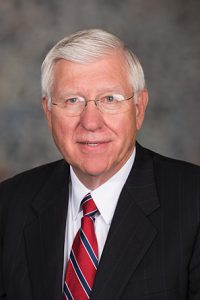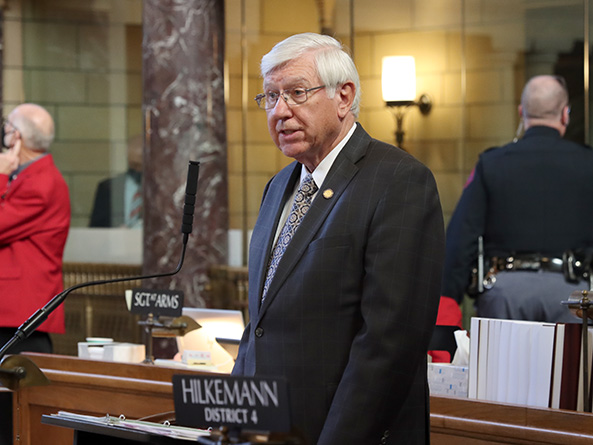DNA collection for felony charges advanced after cloture
A bill that would require forensic evidence to be collected upon arrest for certain felony charges advanced from select file Jan. 19 following a successful cloture motion.

LB496, as introduced by Omaha Sen. Robert Hilkemann last session, would require an adult charged with a felony crime of violence or burglary to provide a DNA sample to law enforcement at the time of booking or to the court during a first appearance.
The bill was amended during first-round debate in 2021. As amended, samples obtained under the provisions of LB496 would not be tested or placed into the state’s database until a judicial determination of probable cause has been made or a hearing to determine probable cause has been waived.
If the charge against an individual is dismissed, the DNA sample would be destroyed immediately and notice would be sent to the individual. In addition, the provisions of LB496 would not apply to juveniles.
Hilkemann said the bill would apply to a narrow set of crimes and could assist law enforcement in solving cold cases.
“This is a bill I believe will help Nebraska be smart on crime by using DNA to exonerate the innocent and identify individuals for unsolved crime,” Hilkemann said.
Plymouth Sen. Tom Brandt spoke in support of LB496, saying an individual’s DNA would be removed from the system in cases when charges are dropped.
“What this bill is about is balancing the rights of the individual with justice for the victims of crime,” Brandt said.
Omaha Sen. Megan Hunt opposed the bill, indicating that it would cast too wide a net. She offered an amendment during select file debate that would require all Nebraska residents ages 19 and over to submit their DNA to the state DNA Sample Bank.
“This would follow the logic of LB496 that innocent people should have their DNA collected in the interest of [solving] crimes,” Hunt said. “I don’t agree with that assumption … we just can’t be collecting DNA from innocent people.”
Sen. Machaela Cavanaugh of Omaha spoke in opposition to the bill. She expressed concern that sexual assault kits, which currently are backlogged, would become increasingly delayed if DNA collection increases as outlined in LB496.
“If we have close to a million dollars to spare for the crime lab, our priority should be making sure that victims know that their [sexual assault] cases are being taken seriously,” she said.
Omaha Sens. Terrell McKinney and Justin Wayne also spoke in opposition to LB496. Both said the bill disproportionately would affect Black community members in North Omaha who are more likely to be overpoliced and overcharged with crimes.
“Just because a person is charged with a crime, it doesn’t mean they’re guilty,” McKinney said. “We should allow for the judicial process to go through before we collect an individual’s DNA.”
After four hours of discussion spanning several days, Hilkemann offered a motion to invoke cloture, which ends debate and forces a vote on the bill and any pending amendments. Lawmakers voted 33-12 to invoke cloture. Thirty-three votes were needed.
Senators then rejected the pending Hunt amendment and voted 26-16 to advance LB496 to final reading. Twenty-five votes were needed.


